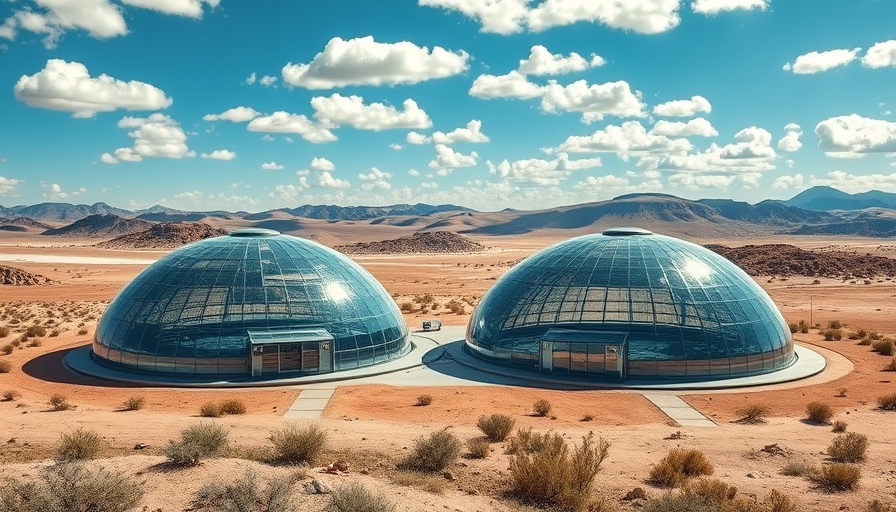
Understanding the Bold Experiment of Biosphere 2
In the early 1990s, a groundbreaking experiment unfolded in the Arizona desert, challenging our perception of Earth and the potential for human survival beyond it. This innovative project, known as Biosphere 2, was designed to replicate the essential ecosystems of our planet, inviting a small group of individuals to inhabit it while completely sealed off from the outside world.
The Self-Contained World in the Desert
Biosphere 2 comprises various ecosystems—from tropical rainforests to oceans—inside an expansive glass structure. At three acres, this ambitious project aimed to emulate Earth (Biosphere 1), allowing researchers to explore closed ecological systems, which could be essential for future space colonization. Eight individuals spent two years living in this controlled environment, growing their food and recycling water, aiming to maintain a self-sustaining world.
Lessons from Survival: What Went Wrong?
Despite the grand vision, the outcomes were far from successful. As documented in the 2020 film Spaceship Earth, the inhabitants faced a plethora of challenges. Low oxygen levels contributed to health issues, while carbon dioxide levels rose alarmingly. Crucially, many organisms within the biosphere perished, disrupting vital ecosystems and highlighting just how interdependent life forms are within such a system. The call for external assistance—bringing in supplemental oxygen—sparked major criticisms, leading many to dismiss the experiment as a monumental failure.
Recognizing Its Value in Ecological Studies
However, upon deeper reflection, experts have reevaluated the Biosphere 2 initiative as a treasure trove of insights about ecology and atmospheric science. They argue that understanding its failures provides crucial data regarding ecosystems' fragility and resilience on Earth, emphasizing the importance of environmental balance.
The Impact of Climate Change on Our Planet
The lessons from the Biosphere 2 experiment resonate profoundly today, especially as the worlds of environmental science and public policy confront the devastating realities of climate change. The dangers of improper ecological management, as evidenced by failures within the biospheric experiment, serve as a stark reminder of our own planet's vulnerabilities and the global environmental challenges we face.
Global Implications and Future Predictions
Biosphere 2's revelations extend their influence to discussions about future colonization of other planets. The research indicates that any attempt at creating habitable environments in space must carefully consider the delicate balances of Earth's ecosystems. As humanity's ambition to explore beyond Earth grows, understanding the challenges experienced in a controlled environment like Biosphere 2 will prove crucial.
Exploring Current Events Through the Lens of Biosphere 2
Today, as we witness various forms of environmental degradation through natural disasters, pollution, and climate change, it is imperative to connect the dots between historic experiments like Biosphere 2 and current international headlines. The ongoing global news updates around climate policy, scientific research, and environmental conservation echo the core message of the Biosphere 2—our planet's health is intrinsically linked to our survival.
Concluding Thoughts
Biosphere 2 remains a powerful testament to human curiosity and ambition. While the endeavor faced numerous challenges, the knowledge gleaned from the experiment continues to shape our understanding of ecological systems and our relationship with Earth. The ongoing dialogue surrounding climate change underscores the necessity to remain vigilant and proactive in caring for our shared home.
If you're interested in staying informed about the current world events that impact our planet, consider exploring updates on global environmental policies and scientific breakthroughs. Together, we can learn from past attempts and navigate a sustainable future.
 Add Row
Add Row  Add
Add 




Write A Comment